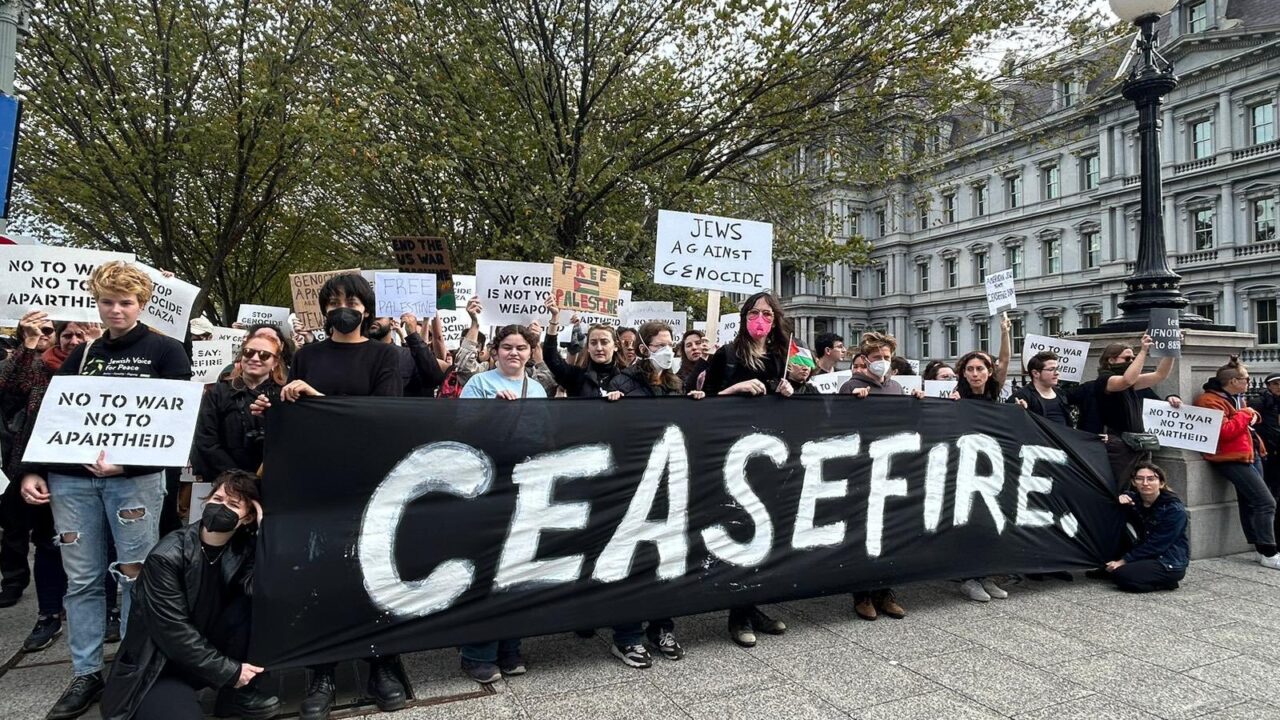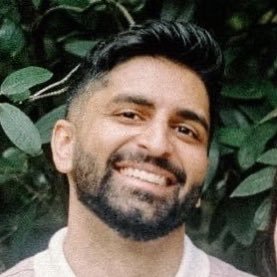Much ink has been spilled in mainstream and progressive media about toxicity on the left as it pertains to its response to the latest war in Gaza. Self-proclaimed leftists have indeed made horrific statements condoning Hamas’ violent atrocities against Israeli civilians. Some of this has to do with anti-semitism on the left, both intentional or unintentional. The media already has a predilection for driving controversy but this piece seeks to ask progressives and leftists to do some introspection and self-criticism.
Some of this tendency on parts of the left have to do with what Bayard Rustin has called the “no-win tendency” and what Yotam Marom calls the politics of powerlessness, where because activists deep down feel like they have no power to influence the Israeli government, or the United States government and its military industrial complex, they wild out, signal to their friends about who is the most radical, and act foolish because why bother building an organized and disciplined infrastructure to impact politics when that route feels so closed to pressure.
The best way to describe this tendency is as Martin Luther King talked about Black and white radicals who opposed strategic nonviolence in one of his final essays in 1968:
They are the radicals. They range from moderate to extreme in the degree to which they want to alter the social system. All of them agree that only by structural change can current evils be eliminated because the roots are in the system rather than in man or in faulty operations. This is a new breed of radicals…
…Their radicalism grows because the power structure of today is unrelenting in defending not only its social system but the evils it contains. What is the attitude of this second, radical, group to the problem of violence? In a word, I think it is mixed. There are young radicals today who are pacifists, and there are many armchair revolutionaries who insist on the political and psychological need for violence.
These young theorists of violence elaborately scorn the process of dialogue in favor of the tactic of confrontation. They glorify the guerrilla movement, and especially its new martyr, Che Guevara. But across the spectrum of attitudes toward violence that can be found among the radicals is there a unifying thread? Whether they read Gandhi or Fanon, all the radicals understand the need for action — direct, self-transforming and structure-transforming action. This may be their most creative collective insight.
The despair and powerlessness of this tendency is real, despite its strategic incoherence and futility. And still, the activist fringe that condones Hamas or believes they are “legitimate resistance,” despite the fact that most of the left in Palestine has always opposed Hamas as a far-right that is resistant to the more secular tenets of Palestinian socialism, has been disproportionately scrutinized. “I find my opinions misinterpreted, especially where they include substantial criticism of Islamist movement,” wrote Palestinian intellectual Edward Said in 2002. “First, I am secular; second, I do not trust religious movements; and third, I disagree with these movements’ methods, means, analyses, values and visions.” Said continued, “If there is one thing that has done us more harm as a cause than Arafat’s ruinous regime, it is calamitous policy of killing Israeli civilians, which further proves to the world that we are indeed terrorists and an immoral movement. For what gain, no one has been able to say.”
And yet, even as the media attempts to portray the entire left with a pro-Hamas brush, there is not a member of Congress who condones Hamas’ violence against civilians. Instead, the vast majority of members of Congress actively or passively support the genocidal rhetoric and actions of the far-right Israeli regime hellbent on wiping Palestinians off the map in a vicious campaign of revenge. Anti-Palestinian racism is so normalized in Washington and the media that no one even bats an eye when a Democratic Congressman suggests all Muslims “are to blame” for Hamas or when Republican Senator Lindsay Graham says America is in a “religious war” and to “level the place.”

Originally posted by BLM Chicago, they’ve since deleted and apologized.
The rhetoric coming from American and Israeli public officials might make progressives want to forgo this critique of left toxicity, we shouldn’t. We must speak out against toxicity when it begins to boil – and that sometimes requires leadership and becoming perhaps temporarily unpopular. When you don’t speak out against toxicity, it festers and grows. And the people who are curious about your cause, but might not fully understand it, see and feel the toxicity and leave. There are only so many times the entire mainstream media points its cameras at the left, and we better look damn good and welcoming and organized when they do. The media is designed to stoke controversy and get reactions from public officials. When the toxicity boils enough to make it onto social media or at a rally, the media will inevitably look at it and make our movement answer for it. But we, ultimately, control what comes out of our mouths, what we write on signs and post on social media, and most importantly, our own values.
And yet, what is the most interesting development on the left to me isn’t its toxicity or lack of organization. It’s the leaders across the country embodying the values of beloved community and holding people through some of the worst that can happen to a human being imaginable. Leaders who get no coverage or affirmation or attention compared to the fringe.
So while some fringe parts of the activist left confusingly mapped on the “Black Lives Matter” vs “All Lives Matter” discourse onto Israelis and Palestinians, where it became inappropriate or uncool to mourn or even acknowledge “Israeli lives,” other leaders showed a different path forward: a politics of solidarity where every human being is precious and has value. Take Squad member Representative Summer Lee’s remarks at Friday’s “Ceasefire Now” press conference for instance:
I want to begin by saying that peace means that we hold space for each and every one of our communities, including my Jewish community, our beloved community in Pittsburgh, who are five years from the commemoration of the worst anti-Semitic attacks, reliving so much pain and so much trauma. But we don’t stand here to add to that pain.
We stand here to say that we will fight against any more pain that will come. I stand here because there are so many people who are in a space where they have so much to risk, but recognize that courage might not always be repaid or rewarded with political safety or comfort or opportunity.
But in this instance, courage will be rewarded in the lives that we can still save in Gaza and Israel, or right outside of Chicago, where baby Wadea was. Lives that are precious wherever they come from, whatever color they are, whatever tongue they speak, or whatever God they pray to. Lives that are precious because they are.
I wanted to say here, today, that our love for communities that may have not been shown enough, that our political action for a community that needs us desperately is not in opposition to another beloved community. We can show love for one beloved community and it does not mean that we hate another. We can here, today, exhibit a love for everybody impacted here: our Jewish siblings, our Israeli siblings, our Palestinian, Muslim, and Arab communities.
The rhetoric must change now, and those of us with anything must use what we have to redirect the rhetoric and redirect the action so that we can take those actions that save lives.
Summer Lee uses the language of power, not powerlessness. She knows that her words matter and that she is now morally and politically tasked with the difficult work of mobilizing the already converted and persuading others. She knows she must build a coalition across our complicated and myriad differences. That requires thought and care and discipline and a grounding in moral principles.
I’ve seen the most people cry this week in public since 9/11. Tears spill when your body can’t comprehend the reality it faces and something must release. But tears, regardless of who and where they originate from, are made of the same stuff: two atoms of hydrogen joined to a single atom of oxygen. The basis of solidarity is seeing someone else’s burden and trying to lighten the load. That doesn’t mean that there isn’t a deep, systemic power imbalance between the ability for Palestinians to live free as compared to Israelis or that Palestinian rights activists aren’t deeply criminalized and policed in the United States and abroad. But it does mean that pain is still pain, and that death is still death, even if it isn’t distributed equally.
Solidarity across difference doesn’t just happen; it is forged. It is forged through pain and conflict, through relationships and common values, through love and struggle, through decency and humility, and through emotional and material resources. Summer is not the only one: look at IfNotNow, Jewish Voice for Peace, Institute of Middle East Understanding, Adalah Justice Project, Jews for Racial and Economic Justice, Sally Abed and Alon-Lee Green of Standing Together, Ayman Odeh, Eva Borgwardt, Reverend Stephen A. Green, Ahmed Moor, Minister Nyle Fort, Rachel Gilmer, Cori Bush, Rashida Tlaib, Ayanna Pressley, Ilhan Omar, Alexandria Ocasio-Cortez, Jamaal Bowman, Greg Casar, Abbas Alawieh, Omar Baddar, Peter Beinart, and so many others. Instead of just condemning kneejerk keyboard warriors, maybe a newspaper could write about this new, beautiful anti-war peace movement taking hold across the country?
“Maya (an Israeli girl) didn’t deserve to be targeted, neither did Shaima (a Palestinian girl) deserve to die. And that’s the common humanity that we all have to remember because they’re trying to take it away from us…If we don’t get back to our shared humanity, I don’t think we’re ever, ever going to be able to come back from this.” -Rashida Tlaib
“Politics offers two visions of why the peoples of the world have met here: One in which we are nothing more than competitors, and another in which the proximity of so much difference forces us to admit our common humanity” -Heather McGhee

